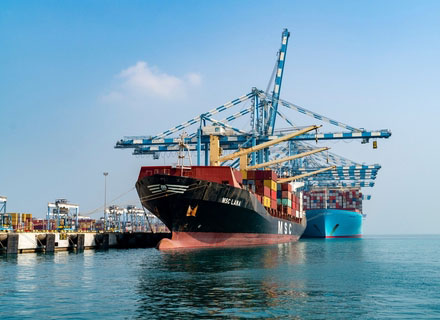Sudan has cancelled a USD 6 billion deal with the United Arab Emirates (UAE) to develop a Red Sea port, Finance Minister Gibril Ibrahim said on November 3, accusing Abu Dhabi of supporting the Rapid Support Forces (RSF) in the country’s ongoing conflict.
The deal, signed in December 2022, would have seen Abu Dhabi Ports and Invictus Investment, a company managed by Sudanese businessman Osama Daoud, build and operate the Abu Amama port, located about 200 km (124 miles) north of Port Sudan.
“After what happened, we will not give the UAE a single centimetre on the Red Sea coast,” Ibrahim told a news conference in Port Sudan. He was referring to allegations that the UAE has provided backing to the RSF, which has been battling Sudan’s army since April 15. The brutal civil war, which started in April 2023, has resulted in the death of an estimated 15-60,000 people and the displacement of eight million to date.
The scrapped project was part of a larger investment package that included a free trade zone, an agricultural project, and a USD 300 million deposit to Sudan’s central bank.
The official Sudanese Armed Forces (SAF) and the RSF were allied for decades under longtime dictator Omar al-Bashir, and they worked jointly to restore a military dictatorship in 2021, ending a brief civilian rule that began in 2019. In early 2023, SAF leader General Abdel Fattah al-Burhan and RSF leader Mohamed Hamdan “Hemedti” Dagalo fell over a ministerial appointment.
As the fighting has been on for more than a year, neither SAF or RSF has gained the upper hand, though the latter made major gains in Khartoum and the country’s west. As of October 2024, the SAF was on the offensive, with the mission of retaking parts of Khartoum and Dinder.
Foreign powers like Iran and Russia have weighed in on both sides of the conflict, with some evidence of Iranian and Russian support for the SAF, including a landmark Russia-SAF deal to build a naval base on the Sudanese coast. While the UAE is accused of supporting the RSF with arms, flown into neighbouring nations and trucked across the border, the Gulf country has denied providing any backing for the RSF, dubbing its intervention as a humanitarian aid operation, apart from calling for mediated peace talks.
Analysts believe that the economic motive behind the UAE’s alleged support to RSF may be the latter’s interest in securing its landholdings in Sudan’s fertile Nile region. The UAE is dependent on imported food, and has reportedly invested heavily in agricultural land in Sudan. The USD 6 billion transport network and seaport complex that it had planned with the SAF-led government would have supported exports of UAE-bound agricultural products.

